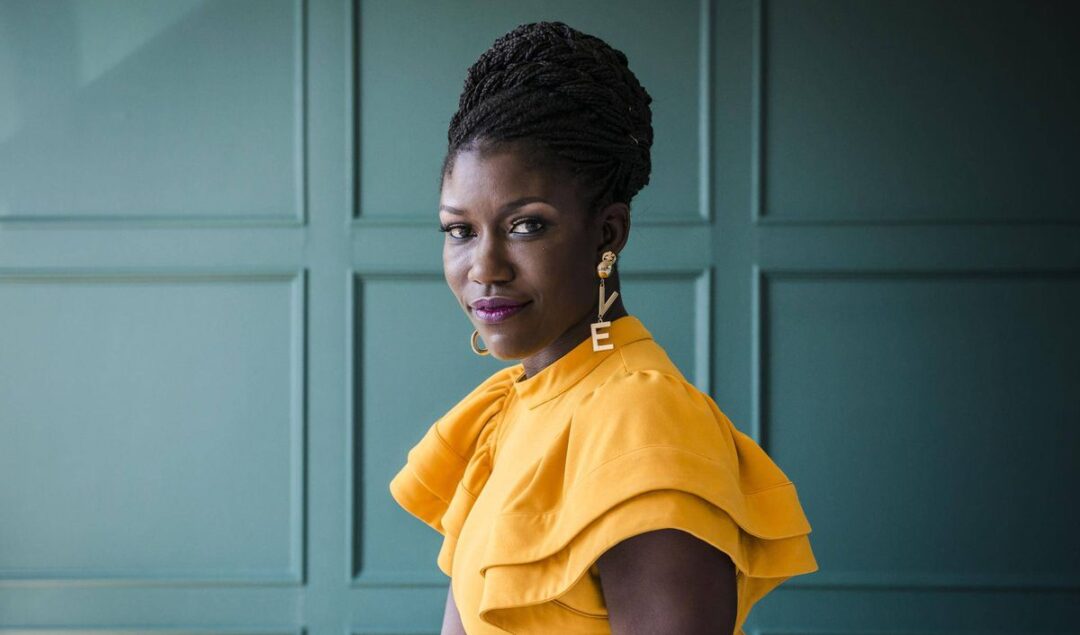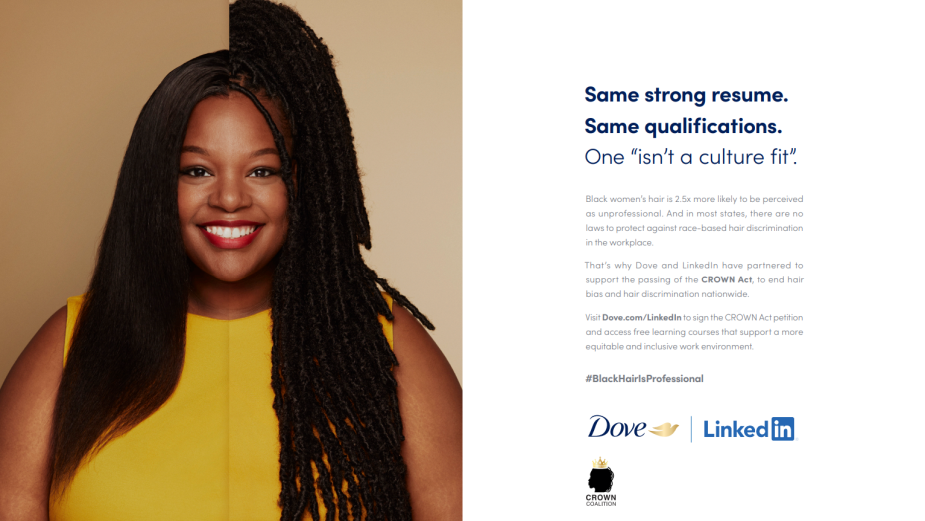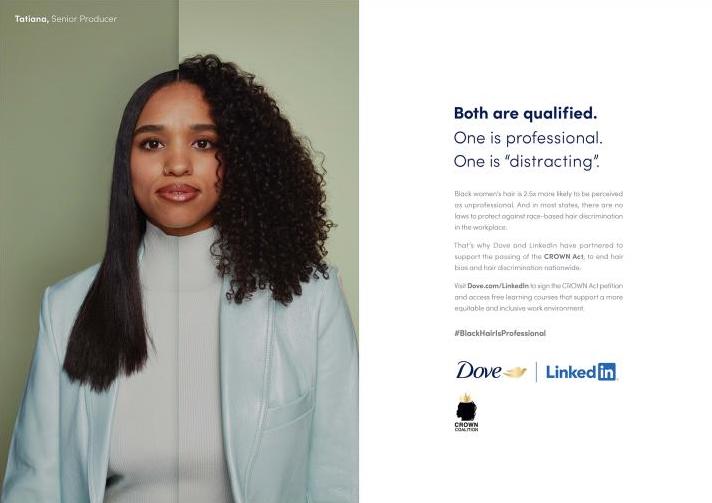From LinkedIn To The Law: How Black Women Are Tackling Hair Discrimination

Black women have long faced hair discrimination in the workplace, from hiring practices to daily interactions.
The 2023 CROWN Workplace Research study found that :
- Black women’s hair is 2.5 times more likely to be perceived as unprofessional
- More than half of Black women felt the need to wear straight hair for job interviews
- 1 in 5 Black women aged 25-34 had been sent home from work because of their hair
- 1 in 4 Black women believe they were denied a job because of their hair
People with more tightly coiled hair face more discrimination than those with hair more similar to that of their white counterparts. This experience of texturism is also reported by women of color living in countries like Australia, Canada, South Africa, and the UK.
The CROWN Act
The CROWN Act was created in 2019 by Dove and the CROWN Coalition, in partnership with then State Senator Holly J. Mitchell of California, to ensure protection against discrimination based on race-based hairstyles by extending statutory protection to hair texture and protective styles such as braids, locs, twists, and knots in the workplace and public schools.
The legislation has since been adopted by 20 states, but in the US there are still no protections against hair discrimination at the federal level.
#BlackHairIsProfessional Campaign
Earlier this year, Dove, the CROWN Coalition, and LinkedIn joined forces to launch the #BlackHairIsProfessional earlier this year. The campaign adopts a comprehensive approach involving awareness, education, and legislation to redefine what is considered “professional” hair.
“I have always supported The CROWN Act and am a Top Voice on LinkedIn, so joining Dove and LinkedIn to launch this campaign was a no-brainer,” marketing executive Bozoma Saint John said in a Forbes interview.

“There have always been obstacles when I’ve worn hairstyles that needed to be straight [according to corporate norms], and there have been even more obstacles when I’ve switched out my hairstyle in the middle of the week! The obstacles aren’t big boulders; they are small pebbles of microaggressions that grow into self-consciousness.”
She continued, “But just like any other part of my appearance, I’ve realized I am my best self-defense. So I can’t be quiet when I’m offended, but it also feels good to have a cheering squad too.”
By using the hashtag #BlackHairIsProfessional on LinkedIn, hundreds of Black professionals have joined Saint John in sharing their experiences and insights, highlighting the need for change.
Enacting change in the workplace
In addition to encouraging people to share the CROWN Act petition, the #BlackHairIsProfessional initiative aims to provide all LinkedIn users with free access to a suite of ten LinkedIn Learning courses that support a more inclusive work environment.
The campaign also seeks to educate one million hiring managers and workplace professionals by the end of 2023, promoting awareness of the CROWN Act and encouraging petition signatures.
In addition to raising awareness about hair discrimination, there are calls for leaders to reassess workplace policies that may reinforce racist ideas around what is considered professional.
Taking steps like integrating scorecards and rubrics into hiring and review processes can help ensure individuals are evaluated based on core competencies rather than subjective ideas about professionalism.

“Hair discrimination continues to be a pervasive issue that impacts Black women’s experiences in the workplace,” DEI expert Janice Gassam Asare, PhD wrote in the Harvard Business Review.
“As with any type of bias, it’s important to continue to have conversations that center the experiences of those most impacted while providing ongoing education for all employees — particularly those with decision-making and leadership power.”



